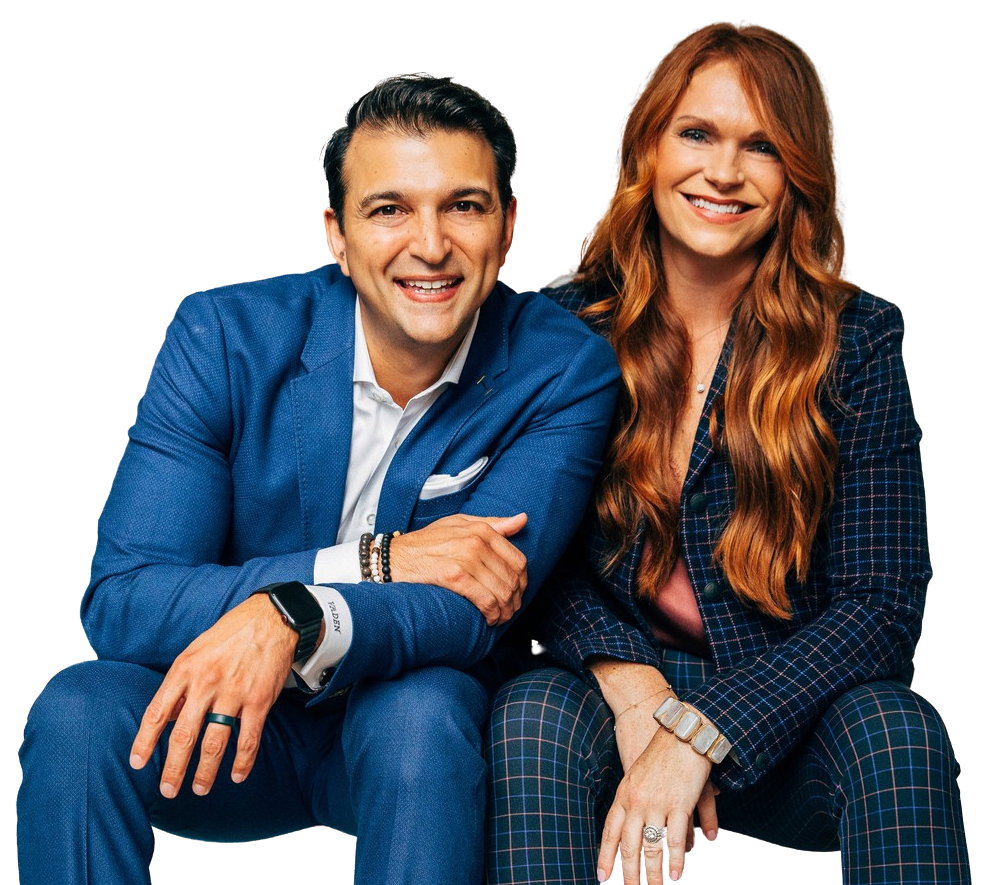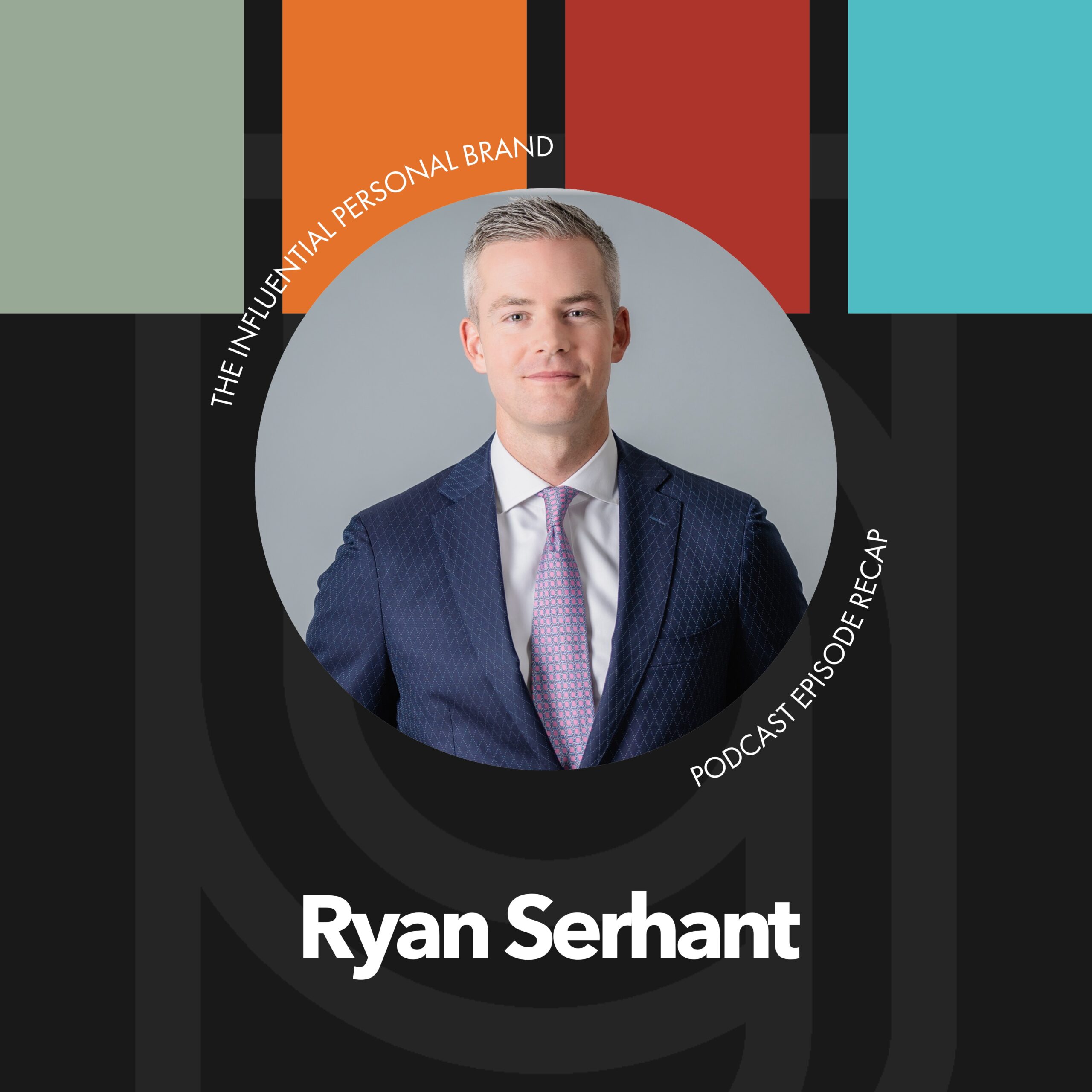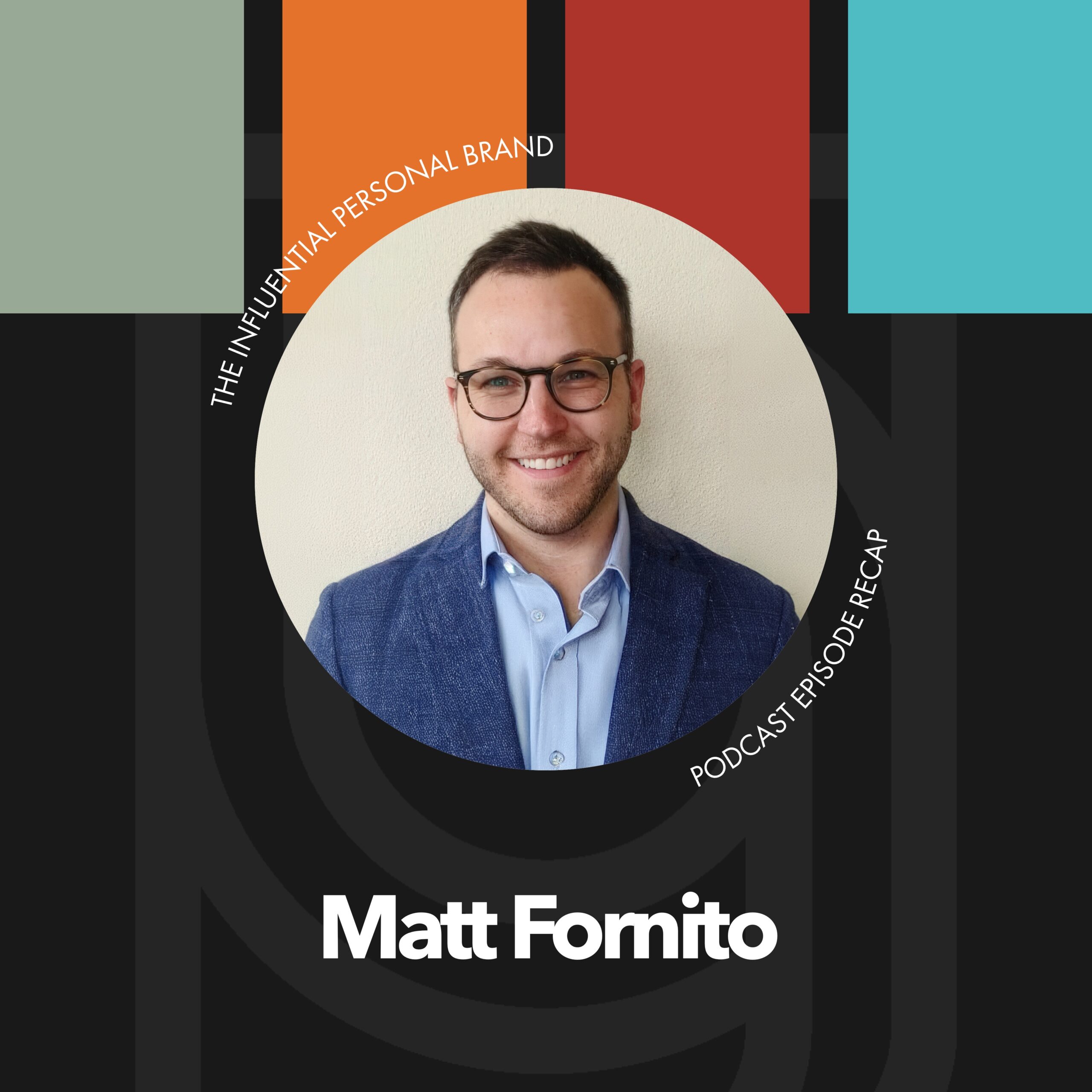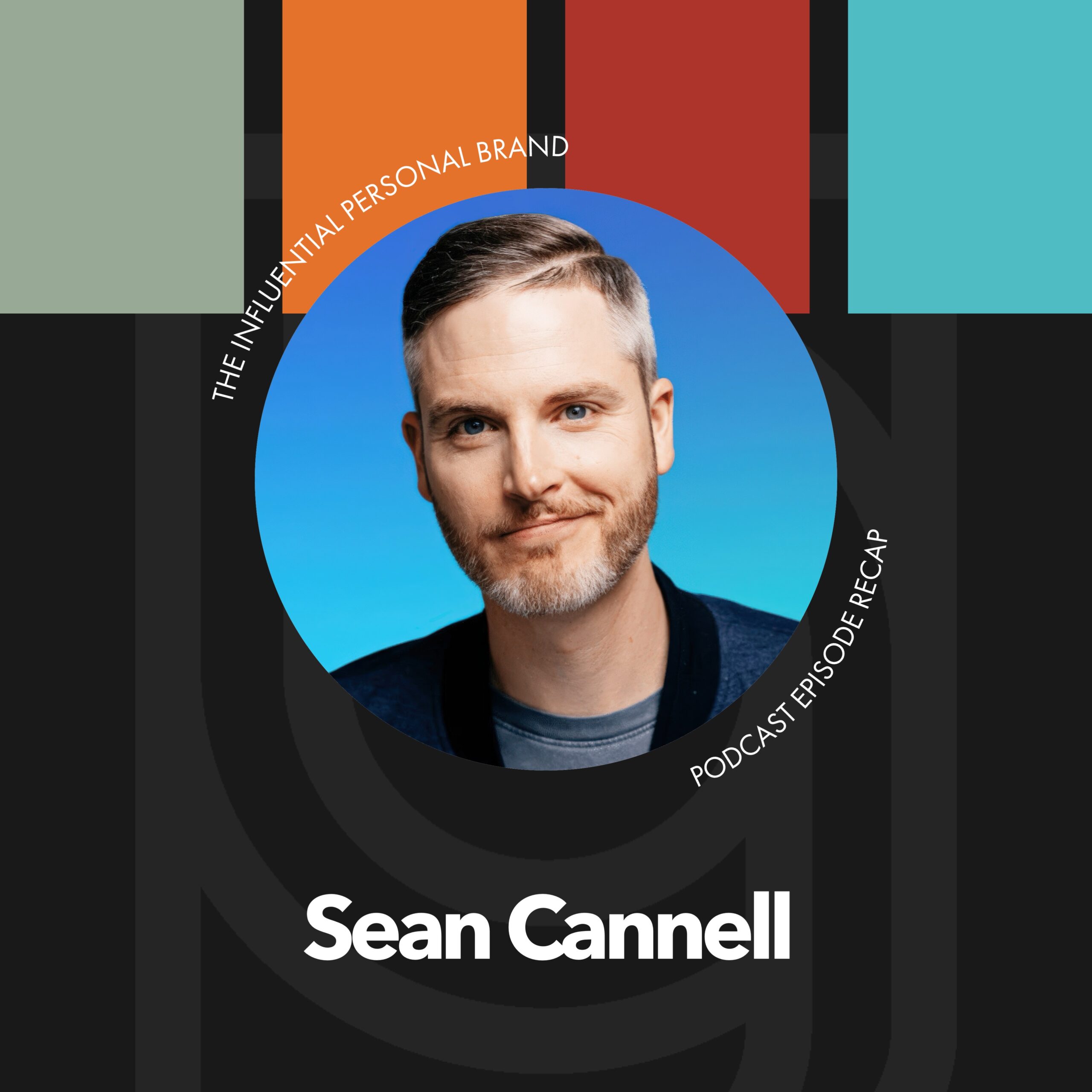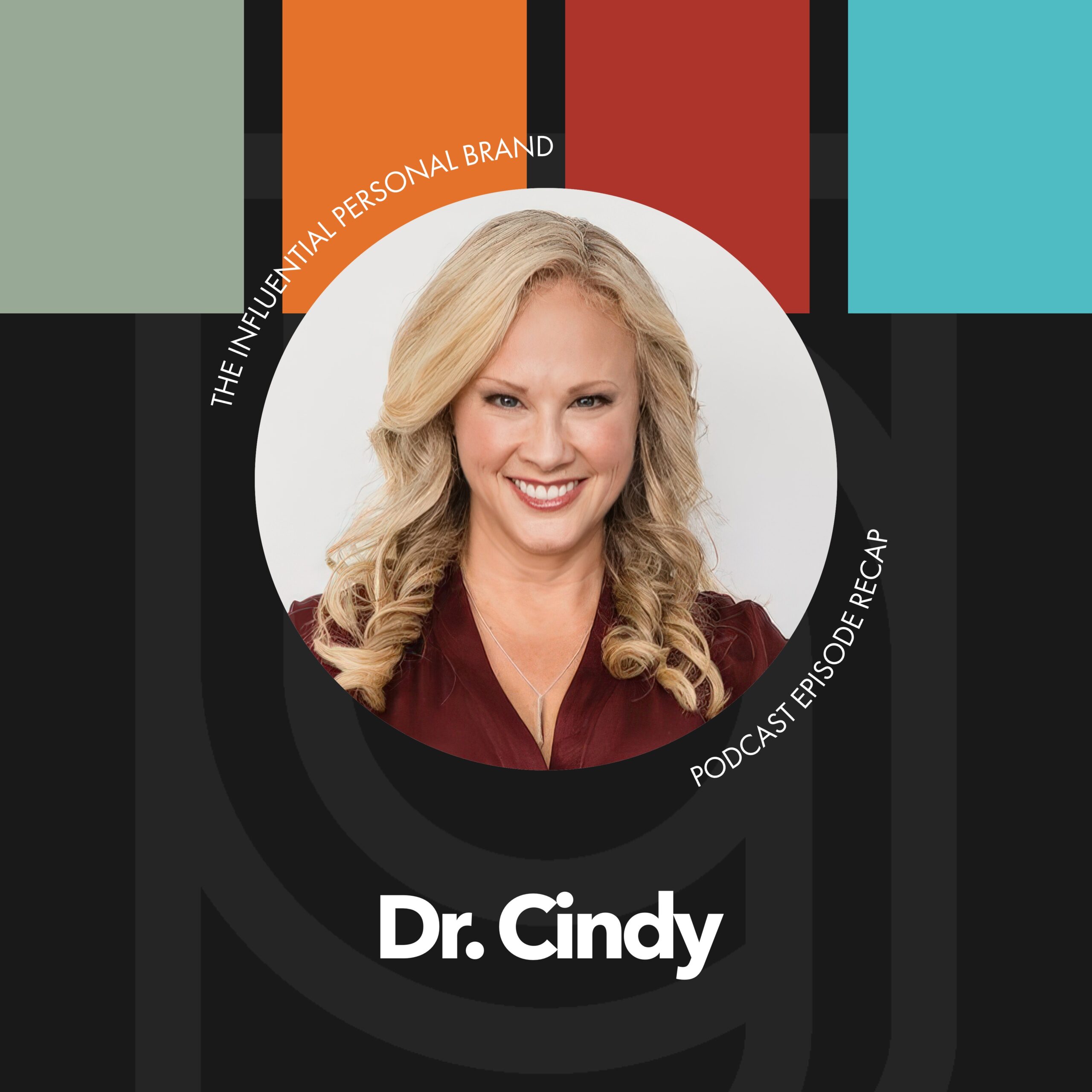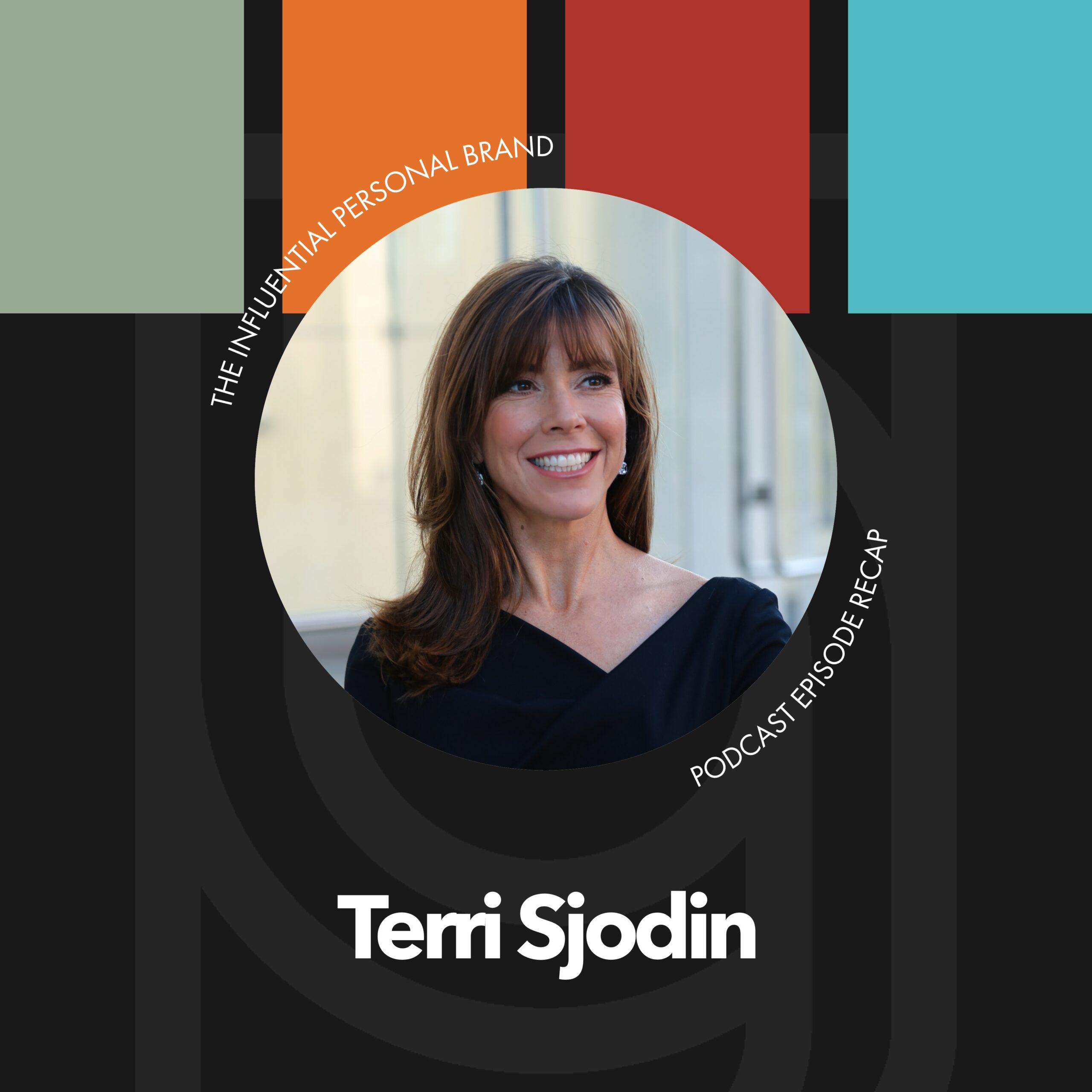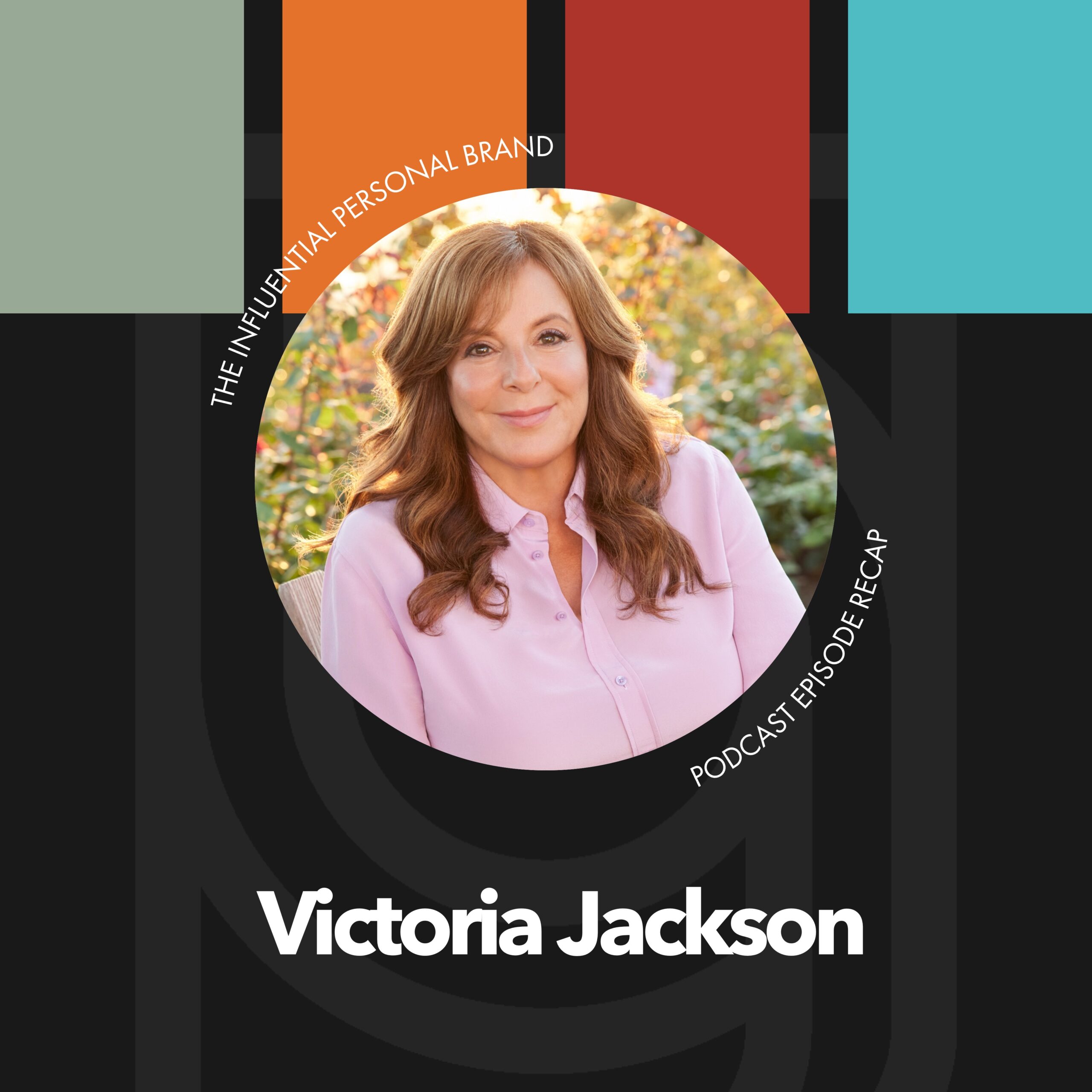Hey, welcome to the recap edition of the influential personal brand podcast. We are here breaking down the episode with Hal Elrod. AJ was just making fun of me before we started. And so that’s why I see he’s chuckling, but we’re going to give you our top three and three takeaways, and I’m going to go first this time. You know, I have so much respect for how I think you probably hear that in the interview, but from a technical perspective, in addition to his personal story of dying and coming back to life, which is incredible. He also is an eight self publishing success story, probably my favorite self published success story. And everyone thinks you have to traditionally publish. And there’s a lot of advances. There’s a lot of advantages to traditionally publishing, but you know, he tells the story about for three years, he tried to ride it and he thought he had to traditionally publish.
And then finally just realized that actually the publisher doesn’t do that much to promote your book. And so you have to do the promotion anyway. So why not self publish? And he does it and boom, 2 million copies tell, I don’t know of anyone that sold 2 million copies, self published, and it’s just incredible. And to me inspiring that it’s not just traditional publisher. Self-Publish it’s what is your dream? And what belief are you allowing to hold you back? What, what wall are you allowing to be there that you’re, you’re acquiescing to? When in reality, there’s not even a wall there and you can just blow through it and figure it out yourself. You don’t need to get a TV show. You can launch your own show. You don’t need to get a traditionally book published deal. You can self publish, like you don’t need to be on national radio. You can launch a podcast. So many limits just exist in our own mind. And I just, I loved that. It was inspiring to me it a long rant. That was not that long. Hold on, pause the recording. Let’s go look. I don’t think it was though.
It’s felt long, been a long day, but I think is really pertinent to this particular interview. And as you can tell, this is a, not a shower day for me. This is my mommy day. And Rory, actually,
For those of you watching this on YouTube, those of you listening to the podcast,
I sound just as like normal
In full makeup and full hair and her nicest outfit.
Oh, well, yes, but I will tell you it’s, it’s kind of interesting because we, we came in through, from a weekend trip yesterday and didn’t have time to record our recap when we typically do. And Tuesdays are always my mommy day where I’m just full time mom, all day long with my two toddlers. Which means I don’t usually get a shower or hair or makeup or do anything for myself. Maybe I get to eat. But Rory was like, Hey, I really want you to listen to this. And I’m like, Oh, you can just record this one. And then I listened to it and I’m like, Oh, now I know why he insisted that I listen to it. Cause I had a really couple of negative moments of like, I’m so overwhelmed. There’s not enough. There’s not enough time to go around.
No one’s looking out for me. Kind of had some of those moments and he was like, Hey, are you going to listen to that podcast? And I’m like, okay, well now it’s all clicking and I’ll putting together. And I think that was one of the things that was really important to me listening to this and why all of you should listen to this as much as you’re going to learn about your personal brand and self publishing and traditional publishing for that matter and building a community. I think the first half of the interview is worth listening to whatever you, you gleam from the rest of it is awesome. But the first half is just such a great reminder, no matter where you are in your personal brand journey, you control how you feel, right. You control. If you think you’re succeeding or not.
That has a hundred percent to do with your perspective and your perception of what is impact to you. Is it one person? Is it a million persons? Like why does that matter? It’s like, why do you have to have a hundred thousand followers versus a hundred followers? If you truly believe in what you’re doing and what you’re called to do. And that, I just feel like that more than anything else is why you should listen to this interview and follow Hal and read the book and do all the things and why I really needed to listen to this myself right now is that great reminder of, I have nothing to complain about. I have everything to be grateful for and so do you, right? If you have the opportunity to share your message to even one person that is worth it, it is not about your follower count.
It’s not about six, seven, eight figure advances, even though those are awesome, right? Those are amazing byproducts of just doing what you believe in and what you’re called to do. And I just think if you just focus in on what are you called to do and what are you passionate about and what are you grateful for and how does that just exude from every part of your being, this will work out for you at some point at some time in some way, this will work out for you. And how is a great example of, I’m not gonna wait around for anyone else to do this for me, I can just go do it myself, because I feel that called to the message to the mission and to getting this out there and I’ll do what I gotta do. And sometimes that’s what we gotta do. So that’s why I really think this is awesome.
Yeah. And that, as I would, I would count that as my, I was actually going to save it for my third takeaway. But since you brought it up the first half of the interview, if you haven’t listened to it yet is his personal story about how he died. Came back to life, died again, came back to life, made it through this whole bout and then had cancer and just this inspiring outlook on what it means to be alive. And and how you are in control of what’s going on inside. Like there’s a lot of thing, a lot of things externally that we don’t have control over, but everything that’s going on inside, you are in control of your thoughts, your emotions, your feelings, what you choose to be grateful for, what you decide to spend your time on and to hear it in the context of someone that has gone through so much challenge is just inspiring.
And I, I agree with you it’s that his personal story is just so moving that it is it’s beyond all the wonderful technical details that he shared, you know, things about how self publishing works and how do you do it and how did the advances work and how does the money work? He was super transparent. But you’re in charge of what’s going on inside of your head. And I think as influencers or personal brands we are, so we’re so used to being the teachers or the messengers, it’s easy to forget how we also have to be the students and getting to learn from other people like how and go, wow. Like I’ve got a lot of personal development work to do myself, in addition to all the business work I need to do on my, on my brand. So it was, that was awesome. That was my second takeaway.
Yeah. And I think one of the, I think one of the more technical components of this as it relates to building your personal brand and, you know, writing and speaking and publishing and all the things that he talks about. But I just really love this, this whole concept of people talk about this a lot in the space of you can’t really make a ton of money selling books anymore. A book is more of like a business card. We’ve even said that well he proves that very, very, very wrong, and I think that’s awesome. Like you need some people to step up and go, no, you can. It’s just, you’re not. And I, that was like a really good like, Oh yeah. Like you really can make a lot of money. I mean, you’ve got plenty of people. Who’ve, you know, you know, you’ve got, you know, the Twilight and Harry potters and all of those ends of the world.
But then, but then like when you come to like the real personal development and business space, it’s like, you’ve got those two, you’ve got, you know, like Dave Ramsey and how L rod on the self publishing route like that, that is worth noting. And I just want you guys to like, pay attention. It’s like he has sold 2 million copies self-published and average retail price is around $20. And let’s just say he even gets to keep half of that, which I think he said it averages a little bit higher than 50%. I’m on print version. Y’all at $9. And I just low balled. It like is $10 would be 50%, but at $9 at 2 million copies, you don’t have to be a mathematician to do this. It’s $18 million. You can make plenty of dough selling your books that you self published. And there is all kinds of talk in the industry about, well, if your book won’t just won’t be seen as credible, or it won’t have the same distribution. Well, that just ain’t the case here. And that just proves all of that wrong of, well, no, you can write, you can do that, but you gotta hustle and you gotta do it and you gotta be committed to it. And I, I think that was a great reminder of, you know, you can just, most people aren’t,
Right. Yeah. If you sell a million of any set and you’re going to make money, right. Like matter what it is. And that’s really good. And, and yeah, I think it’s, you know, John Gordon and John Maxwell are people who traditionally published, who I have sold a lot. They have make plenty of money from just book sales. And the Andrews makes plenty of money from just book sales through traditional route. And then you have hell rod. And then, you know, of course, Dave Ramsey’s self-published stuff and then traditionally published and gone back to self publishing. So yeah, I, I love that. And to your point about the hustle, I was just looking up the notes the first year, he said he did 140 interviews, 30 podcasts interviews did 36 speeches and sold like 13,000 copies. He’s strong, which is super strong, but it’s also not the one where you go, Oh, they sold 50,000 units on opening week. And you know, this is, this is the next book that’s going to sell a million. It was 13,000 copies over the first like year and a half, but then he did it consistent and it grew
Not consistent. It totally multiplied because it went from 13,000 in year, one to six years later, 2 million or a million,
Six years, six years to reach a million,
18,000 to a million in six years is like pretty aggressive.
That’s amazing. Well, and so that was my third point is this Facebook group that, you know, and here’s what I think the point is is that if you build a community around your message, then book sales naturally flow out of that, right? Like most people think, how can I build a community around my book when I have a book launch in order to sell my book. And it’s like this one time thing, how wasn’t doing it out of marketing, he was doing it out of impact. He’s like, I want to create a place for people to support one another in cheer each other on and get them to meet me and I can meet them and to answer their questions. And, and it’s the, the Facebook community that he built that, yeah. You know, when you have 250,000 people in your Facebook group every day, talking to each other, of course, they’re going to like the topic of conversation is around this thing.
That is your book. Of course, those people are going to buy, and they’re not just going to read it and forget about it. They’re in there all the time. It’s like having 250,000 salespeople for your book. And that flew flow out of flown out of it, grew out of it. It came out of a mission to serve and build a community around a message, not build a community around a book. And we actually use house book in our bestseller launch plan, which is one of our phase three events. There’s a, there’s a window of that event that we talk about the long tail sales plan, like the perennial bestseller. And we talk about building a community around you know, a movement, not just around a book and how is this great, an example of that? And you can do that today. Even if you don’t have a book, you can build that community now and pour into people and then it will sell books.
Well, you can tell Roy is very passionate about this particular topic. And now there’s a lot of hand movements, a lot of hands movement,
Youtube. You’re seeing my hand movements come aggressively at the camera.
There’s a lot, there’s a lot of hands moving over here. My third point is somewhat similar to that, but I think that I’m not going to say it’s easy, but how really deep details out the plan of, it’s not that difficult to get your book self published and get it distributed. Right. And he really lays out like, well, here’s the company that does this, and this is how you do this. And this is how you get an audio and here’s on Kindle. And it’s like, I’m not going to say it’s easy because that’s still work. But it is simple. It’s not rocket science. And we just have so many people in our network. And if people who are clients that are just baffled and stuck about what do I do, and it’s like, just do something right. If you’re waiting around to decide if you should get traditionally published, it’s like, I think he made a great point.
It’s like, ask yourself how big is your platform? And if it’s not going to sell itself for you, then you should go ahead and self publish. And here’s what you do, right? Here’s how you set up your distribution with Amazon. This is how you set up your Kindle. These are the percentages, and then you do the deal and then you go out and you sell it. You get on podcast interviews, you go speak and you the pants off of it. But if you really are trying to go for that traditional route, it’s just a great reminder of publishers. Aren’t trying to sell your book. It’s your job to sell your book. So do you want to sell it via a publisher and their distribution or sell it via yourself and use all the other distribution channels that have developed over the last 10, 15 years. That really weren’t there back in 2010, like these are all things that have exponentially made this process easier for people to get their messages out there, which is you. And you don’t have to be traditionally published to make tons of money and to be a super credible author these days, you’ve got tons of examples of that. It’s just how bad do you want to do it?
Absolutely. Amen. And you can find a way you can figure it out, by the way, if you’re looking for tactical strategies on how to actually market your book. I mentioned this already. We have an event called bestseller launch plan, which specifically teaches you tactics to market the books. And we use, like I said, how as a case study, another thing that we address in there is when to self publish versus when to traditionally publish you know, a quick tip on that just to rough, a rough guide is we usually say, if you have a platform where you think you can move 10,000 units in the first four to six weeks, that’s a good signal that you’re ready for traditional publishing. And that it probably makes sense. And if you’re not there, or even if you are there, you still need to take a good look at self publishing because of all the reasons that he was talking about the cool 18 million of them, if you got a calculator so anyways, go listen to the interview. Thanks for being here, knocked down the walls, let us know how we can help you. We’re here to support you along the way. We’ll catch you next time on the influential personal brands.






